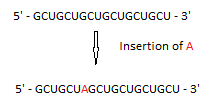Protein Synthesis MCQs
Welcome to our comprehensive collection of Multiple Choice Questions (MCQs) on Protein Synthesis, a fundamental topic in the field of Molecular Biology. Whether you're preparing for competitive exams, honing your problem-solving skills, or simply looking to enhance your abilities in this field, our Protein Synthesis MCQs are designed to help you grasp the core concepts and excel in solving problems.
In this section, you'll find a wide range of Protein Synthesis mcq questions that explore various aspects of Protein Synthesis problems. Each MCQ is crafted to challenge your understanding of Protein Synthesis principles, enabling you to refine your problem-solving techniques. Whether you're a student aiming to ace Molecular Biology tests, a job seeker preparing for interviews, or someone simply interested in sharpening their skills, our Protein Synthesis MCQs are your pathway to success in mastering this essential Molecular Biology topic.
Note: Each of the following question comes with multiple answer choices. Select the most appropriate option and test your understanding of Protein Synthesis. You can click on an option to test your knowledge before viewing the solution for a MCQ. Happy learning!
So, are you ready to put your Protein Synthesis knowledge to the test? Let's get started with our carefully curated MCQs!
Protein Synthesis MCQs | Page 12 of 12
Discover more Topics under Molecular Biology
